Obstructive Sleep Apnea – Denton, TX
Countering Obstruction While You Sleep

It’s estimated that obstructive sleep apnea (OSA) accounts for over 90% of all cases. Without timely treatment, this seemingly simple condition can have dire impacts on your health and wellbeing throughout your life, including increasing your risk of medical conditions like heart disease and high blood pressure. Our team of community-trusted, skilled sleep experts at Star Sleep & Wellness in Denton use proven techniques and treatments to eliminate the risks of OSA before it leads to deteriorating health. Contact us today to schedule an appointment to discuss obstructive sleep apnea in Denton.
What Causes Obstructive Sleep Apnea?
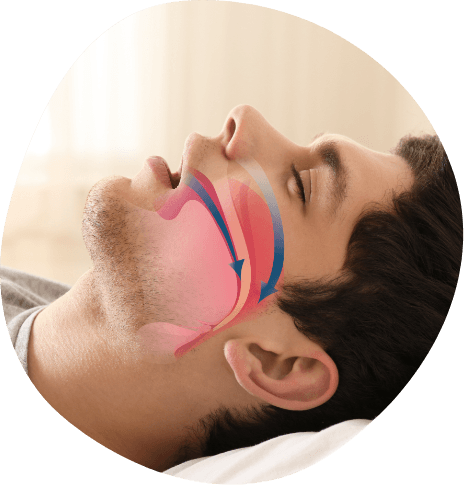
Obstructive sleep apnea is characterized by a blocked airway that limits and halts the ability to breathe as you sleep. When the soft palate and tongue collapse and block the airway, it creates an obstruction that limits the ability for air to flow in and out of the mouth. Ultimately, this results in breathing to stop and limits oxygen intake, triggering the brain to cause you to suddenly wake.
Other cases of OSA include:
- Narrow nasal passages
- Enlarged uvula
- Deviated septum
- Missing teeth
- Enlarged tongue
- Recessed lower jaw
- Enlarged tonsils
- Fat accumulation around the neck
- Sleeping on your back
- Diabetes
- Genetics
- Genetic disorders, including Down syndrome
Possible Complications of Obstructive Sleep Apnea

The longer OSA remains untreated, the increased risk of developing serious health problems as a result. Here are some long-term complications that can develop as a result of obstructive sleep apnea:
- Heart attack or stroke
- Chronic fatigue
- Heightened risk of drowsy driving
- High blood pressure
- Poor work performance
- Frequent headaches
- Weight gain
- Moodiness
- Heart disease
- Diabetes
When to See a Doctor About Obstructive Sleep Apnea

If you have one or more of the symptoms associated with OSA, that’s a good enough reason to contact our office and schedule an evaluation. Loud, chronic snoring, waking up and gasping for air, chronic fatigue, and the other symptoms listed on this page are all reasons to contact our team at Star Sleep & Wellness in Denton immediately. Based on your examination, our team can recommend a sleep study to help determine whether sleep apnea is a cause for your symptoms and determine a treatment plan to address your issue.
Types of Treatment for Obstructive Sleep Apnea
Every patient is different, which is why it’s important that we offer more than one treatment option for obstructive sleep apnea. Based on your individual case, lifestyle, and more details that we’ll gather from you, you may be able to benefit from oral appliance therapy, CPAP therapy, a combination of both, or other solutions our team offers.
Oral Appliance Therapy
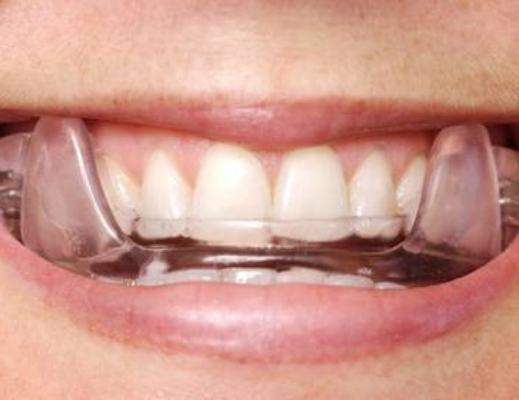
Oral appliance therapy (OAT) utilizes a customized orthotic device that you wear in your mouth while you sleep. It’s designed to fit comfortably while shifting the mouth to prevent the soft tissues from collapsing and blocking the airway. This keeps your throat and airway open to ensure your brain is receiving enough oxygen as you sleep and minimizes snoring.
Continuous Positive Airway Pressure (CPAP)
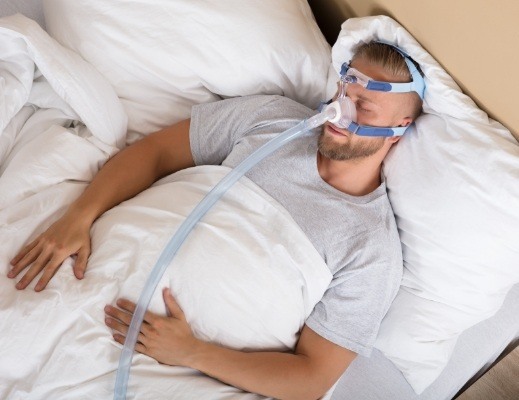
Many patients with OSA begin their treatment journey with a CPAP (continuous positive airway pressure) machine. Using a small mask that fits onto the face, it pushes air through the airways to keep them open. Some patients prefer oral appliance therapy to CPAP therapy because they have difficulty sleeping with the mask on or with the background noise of the device.
Combination Therapy
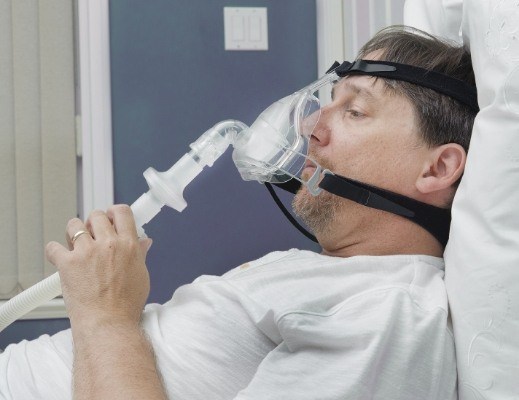
Some patients benefit the most from combination therapy, which utilizes both a CPAP device and oral appliance for maximum airflow. As you wear the oral appliance, you’ll also have the CPAP nose mask on with the machine not on the highest setting (minimizing any noise disruption to your rest). With this comprehensive treatment type, patients can achieve optimal rest.
Health & Wellness Coaching

Our team also offers health and wellness coaching to help address some common problems associated with OSA, including weight loss, depression, anxiety, and more. We work collaboratively, sleep doctors, nurse practitioner, and licensed psychologist, to help you achieve good health and great rest.
Surgery
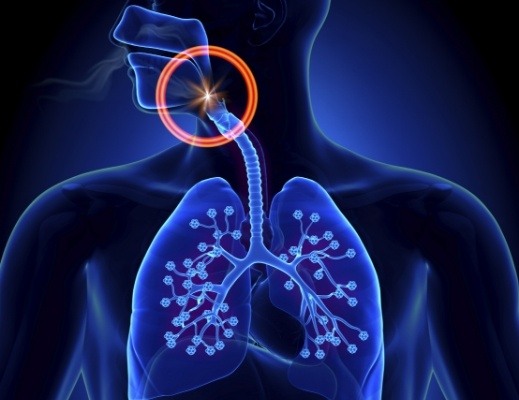
While surgery is a rare sleep apnea treatment option, some patients who don’t achieve relief from the solutions listed above, like those who have enlarged lymphatic tissues or tonsils, may require this intervention. Surgery can help minimize symptoms associated with OSA by removing or reconstructing parts of the airway or facial structure.
Obstructive Sleep Apnea FAQs
Can I diagnose obstructive sleep apnea on my own?
No, you cannot formally diagnose yourself with obstructive sleep apnea. This must be completed with a sleep test and analyzed by a trusted physician. Just because you exhibit certain symptoms does not mean that you have OSA, but it’s important that you seek professional help so that you can receive a formal diagnosis. This will allow you to then begin undergoing treatment.
There are many different devices and gadgets on the market that claim to assist in determining if you have sleep apnea (i.e., smart watches); however, they cannot replace the details delivered by a controlled sleep study.
How soon after starting sleep apnea treatment will I notice improvement?
If you are wearing a CPAP device, it may take some time to adjust, especially since various parts must be used to ensure adequate airflow. However, if you prefer an oral appliance and are cleared to receive one, you may notice an immediate improvement the first night. For some patients, it can take one or two additional nights before noticing a difference.
To know if your oral appliance is working correctly and is effective, another sleep test can be performed. However, if you discover that your symptoms seem to be subsiding, then that is a good sign.
How should I clean my oral appliance?
When wearing an oral appliance to treat your OSA, you’ll need to make sure that you take proper care of it and clean it regularly. Doing so will help to reduce your chances of developing cavities, gum disease, and other possible infections.
In the morning, it’s best if you remove your oral appliance and gently brush it using a soft-bristled toothbrush. You can then rinse it off to flush out any debris or bacteria. You might also consider placing them in a denture cleanser so that they can undergo a thorough soaking. This ensures a more effective cleaning. After it’s finished soaking, make sure to keep it in a protective case so that it does not become damaged or lost.
Will oral appliance therapy make CPAP therapy unnecessary?
Not necessarily. CPAP therapy is designed to pump air forcefully into the airway with the help of a mask so that you continue to breathe freely throughout the night. An oral appliance shifts the jaw forward just slightly so that it decreases the chances of your soft oral tissues collapsing onto your throat and causing an obstruction.
Some patients may require both to ensure successful results. They wear an oral appliance but also use a CPAP device that is kept on a lower setting.
